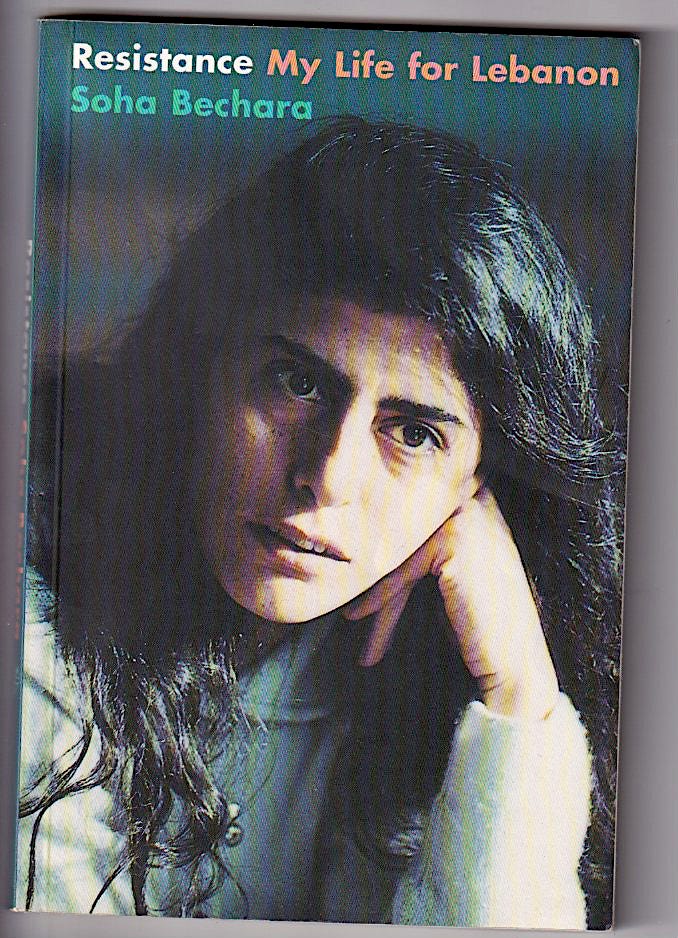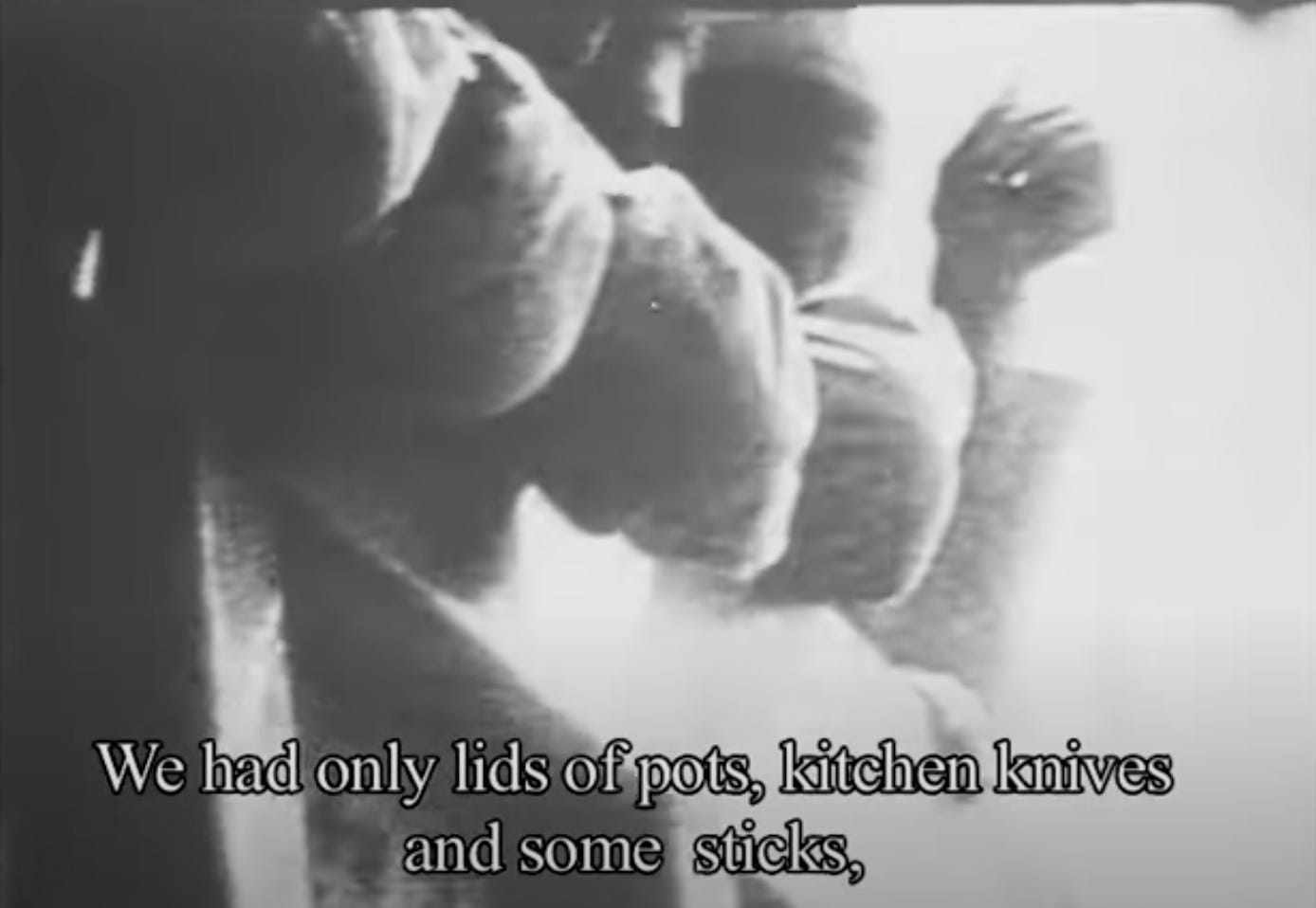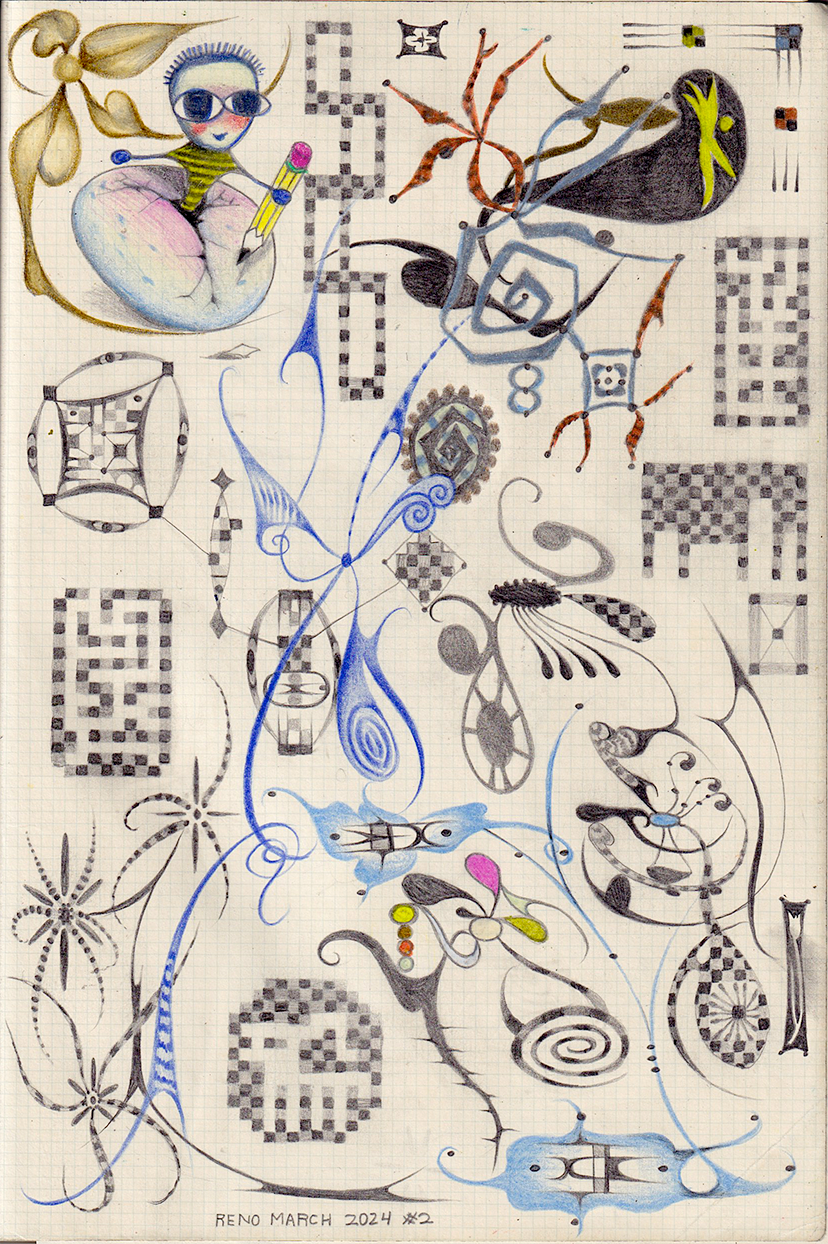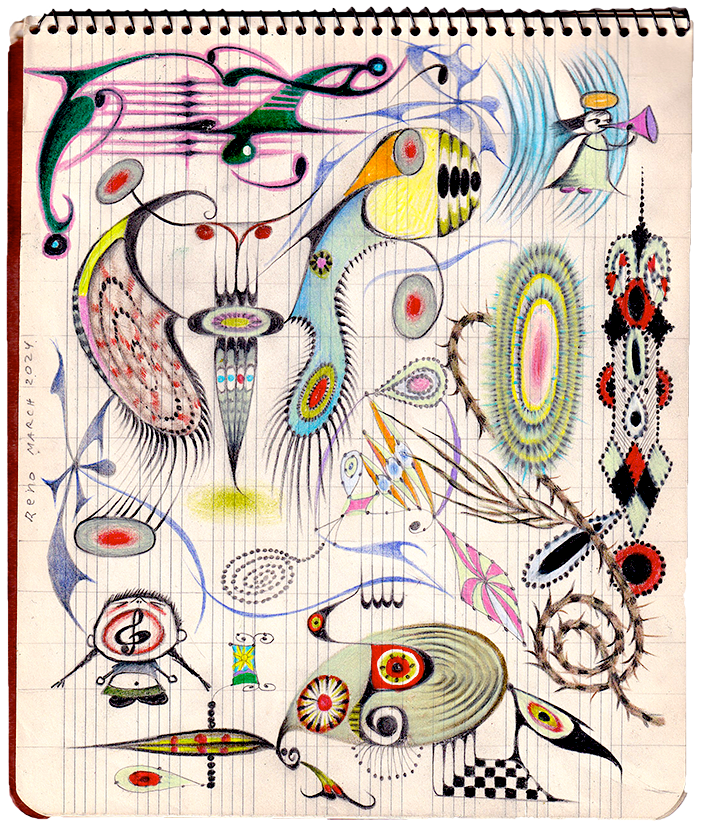Soul Searching for a liberated Palestine [& Reno Booking March- April 2024]
Recs for continued soul- searching. Free Palestine, Free Congo, freedom for all colonized peoples [ and books open for tattoo ]
Hi all, hope everyone is taking good care. I am in Reno tattooing and open to appointment inquires of all sorts. Scroll to the end to see my newest flash, or check my website here. But first, I come to you with some recent recs. Tattooing feels frivolous these days. Here are some recommendations that have given me energy, hope, and grounding lately. Please don’t hesitate to share with me your own recs too.
1. Resistance, My Life for Lebanon, a prison memoir by Soha Bechara, a Lebanese militant who fought against the Israeli occupation of South Lebanon.
A brief but punching recall of the events that shaped her into a fearless revolutionary who refused to be forced into submission even under the decade of torture, isolation, and phycological violence confined inside the walls of Khiam prison.
While reading this I thought about a line from “The Wretched of the Earth” by Franz Fanon, where he writes, “The work of the colonist is to make even dreams of liberty impossible for the colonized. The work of the colonized is to imagine every possible method for annihilating the colonist.” Even while imprisoned, Soha remained a threat to the colonizers because of her refusal to submit. When she saw fellow prisoners get new beds, she refused to ask for one because she knew that would substantiate the prison’s authority. When she was stripped of everything- movement, light, conversation, space, company- she kept herself busy with math equations and poems and small exercises. For me this read was a reiteration that resistance, small or big, is a tool for our own liberation.
Here’s another quote from Franz Fanon’s “Wretched of the Earth”:
“Each generation must discover its mission, fulfill it or betray it, in relative opacity.”
What is our mission? It feels like these days there is such a scramble- there lacks focus, there is a misguided appeal to the conscience of the rich, the politicians, the camera. In a culture that only values capital, the only way to sway the power is to make it unprofitable to do otherwise, though making the lives of those who make excuses for genocide hell on earth is second best. What is our generation’s culture of resistance? It can’t just be TikTok discourse. We have these key words - decolonization, abolition, liberation - that are spoken so much they seem to lose meaning, seem to be used in hypocritical contexts by liberally motivated orgs. How can we keep these ideas alive without diluting them and making them palatable to liberal audiences?
Below is a great conversation that has stuck with me over the weeks, and has help me incorporate some shifts in language and orient myself to advocate for the entirety of decolonization in Palestine, not just the decolonization of Gaza, or any recognition of a 2 party state as a just solution. All of Israel is occupied Palestine. All of Israel has no right to exist, and the language we use in discourse helps to authenticate or protest against its validity.
“The soul is what pierces time, and people go on loving in the very face of mortality” John Berger said in one of his Ways of Seeing episodes. In 1982 Egyptian filmmaker Atteyat El-ABnoudy made Permissible Dreams, a film-portrait of the soul of Om Said, who was a peasant displaced by “something called Israel” in Egypt.
Peasants seem to be nearing extinction since the expansion of Colonization and Industrialization. Though they are often only armed with “pot lids, kitchen knives, and some sticks”, they are historically some of the biggest threats to colonial powers because they are reliant on the land rather than the state, which makes them dangerously ungovernable.
In “Pig Earth” a film by John Berger [based on his book by the same title], he says: “The ceaseless, physical, outgoing, effort of work on the earth means that peasants don’t make a distinction between their own physical being and its being, the earth’s being.” So to remove the land from a peasant is to remove them from their body. The violence of settler colonization manifests in so many forms, and I keep coming back to the IDF burning entire groves of olive trees. What kind of pain it is to mourn a tree, a family of trees, a generation of trees? Olive trees are peacetime trees- they take patience and time to grow and thrive, and are not grown during wartime when quick turnaround is necessary. The massacre of olive trees, a symbol of resistance and peace for Palestinians, is a vicious, intentional attack on the body.
3.
Most of the people who existed on Earth were peasants, though that is no longer the case due to the disease of Imperialism and Industrialization. What have we sacrificed for convenience? Is it worth it? I have always felt that the culture of convenience is one of the most powerful pacifiers of the masses in late stage capitalism, so I reject it when I can. If we believe in our right to convenience, we choose to be a willfully ignorant participant in the output of violence elsewhere, beyond where our conscience can reach. Of course this is easier said than done, and our privilege here in the US depends entirely on the oppression of peoples around the world. The genocide in Congo unfolds so rapidly because of the demand for smartphones and electronics in the US and other countries. This demand is hardly a consumer demand, with big companies like Apple pushing new upgrades onto people as often as they can, and less and less ease of access to basic public resources for those don’t own a smartphone, like in NYC where you have to use an app to ride the subway nowadays. If you don’t submit or don’t have access to this new standard, basic movement and life becomes near impossible or frustratingly bureaucratic— a culture of forced complicity.
I really enjoyed this immersive witness statement by Din, another portrait of a soul. A thoughtful, energetic, angry, loving celebration of life, the universe, dance, music, tradition, and resilience against colonial reprogramming.
4.
There’s this part where Din says, “I hate pizza!!” that I just loved. It so captures the absurdity of American cultural supremacy and the assault and pressure of assimilation. I thought back to me as a kid wanting pizza because it’s what made me feel American, not because I thought it was good. Convenience, Quality of Life, Opportunity - those are the promises of America, the biggest bully of them all, the most successful settler colonial superpower. From the perspective of a Palestinian immigrant, this story was a relief from the constant American-Dream propaganda that tells us everyone wants to be here, that the opportunities here are the best, the culture is the best, the education is the best, you should feel lucky. No!! I hate pizza!!
I think that what lives on should not be the spectacle of violence made of the Palestinian people. The soul is what pierces time, and though people can be killed, trees can be burned, the soul of resistance is the greatest threat to a history rewritten by the oppressor. Palestine will not be free until Israel no longer exists, and I will fix on that point in my horizon of possibility. Pay close attention. Refuse to comply. Remove the hook from your mouth. At the very least, never cease to be an irritant in the eye of the state. Buzz buzz buzzzzz
[Thanks for reading, and please send over your own recs if you have any. If you’re in Reno and want a tattoo send me an email. I’m happy to work with any budget, lets connect.]









This was an important read. I've had similar feelings that all my art feels frivolous with the on going genocide in Palestine. I'll add your recs to my list. I just picked up "Greater Than The Sum of Our Parts, Feminism Inter/Nationalism & Palestine" by Nada Elia. I'm a slow book reader but it's really good even just a few pages in.
thank you for these words and these recs